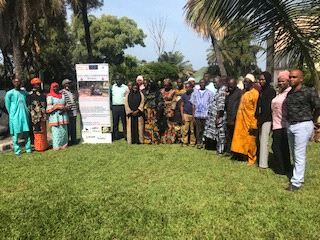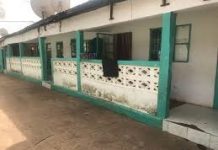By Makutu Manneh
United Purpose and partners have validated the Gender Survey report in the horticulture value chain, to identify the gender roles and functions of women and girls involved in this area.
With funding from the European Union, United Purpose in partnership with NGOs is currently implementing the West Africa Competitiveness Program (WACOMP) in The Gambia for value chain strengthening for onions, pepper, tomatoes and orange flesh sweet potato. This project is said to be supporting a hundred and twenty farmer field schools in five agriculture regions and Micro, Small and Medium Enterprises (MSME), to improve access to markets and job creation. The purpose of the survey is to inform the WACOMP about the growth potentials of women particularly the poor in the value chain production; how the land tenure system affects women’s access to land in the horticulture sector; identify strategic interventions that will enable, increase income and return on labour for women producers, and identify gender related barriers and constraints in the sector.
Ms Ngansa Touray, the project manager said the report can be used nationally and that women should be given a voice as they are involved in all the aspects of the value chain. She said the objective of WACOMP is to increase the competitive ways of the continent at both regional and international levels, by promoting production.
However, Ms Touray said this cannot be done without knowing the challenges women face and how to address them.
In delivering his speech, Mr. Baai E. Jabang, Director of Trust Agency for Rural Development (TARUD), said the survey is important as most people involved in value chain production and marketing in the Gambia, are women.
“Ninety-Eight percent of the people involved in horticultural production in the Gambia are women. So this document is important as we are talking about partnership and mutual relationship and equal opportunity with women,” he said. He said women in the provinces are mostly marginalized and hopes that the report has covered that aspect.
Momodou M. Fanneh, lead consultant of the project said women need to be empowered in the country for any meaningful develop to take place. He said women are one of the main contributors to development in the Gambia, especially those in the agricultural sector. Mr. Fanneh added that more needs to be done in the area of agriculture such as in the area of processing and storage, adding that when this is done, they will have a better Gambia.





















